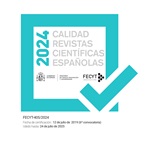A propósito de la Sentencia “pasaportes de oro” del 29 de abril de 2025 del TJUE. (RI §428688)

On the CJEU 'golden passports' Judgment of april 29, 2025 -
Marie-José Garot y Yuliya Kaspiarovich
Este artículo analiza en profundidad la sentencia C-181/23 del Tribunal de Justicia de la Unión Europea, dictada el 29 de abril de 2025, que condena a Malta por su programa de naturalización a cambio de inversiones —conocido como “pasaportes de oro”— por violar los artículos 4.3 TUE y 20 TFUE. La sentencia, impulsada por la Comisión Europea, representa un hito al ser la primera vez que se sanciona a un Estado miembro por la forma en que concede su nacionalidad. El artículo examina los fundamentos jurídicos del fallo, confronta la postura del TJUE con la opinión contraria del Abogado General Collins, y analiza las implicaciones de esta jurisprudencia para la competencia exclusiva de los Estados en materia de nacionalidad, la noción de vínculo efectivo y los límites del principio de reconocimiento mutuo. Asimismo, se interroga sobre el alcance real del principio de primacía del Derecho de la Unión y las tensiones entre soberanía nacional y solidaridad europea. En su conclusión, las autoras advierten sobre el potencial efecto expansivo de la sentencia y las incertidumbres jurídicas que deja abiertas, tanto en relación con la ciudadanía de la Unión como con el futuro del proceso de integración europea.
I.INTRODUCCIÓN. II. HECHOS Y PROCEDIMIENTOS. III. ALEGACIONES DE LAS PARTES. IV. CONCLUSIONES DEL ABOGADO GENERAL COLLINS V. DECISIÓN DE LA GRAN SALA. VI. COMENTARIO. 1 Una competencia exclusiva menguante: ¿una decisión ultra vires? 2. Confianza mutua y reconocimiento mutuo: ¿una nueva excepción a Micheletti? 3. En busca del vínculo efectivo. 3.1 Vinculo efectivo y naturalización. 3.2 Ciudadanía y valores de la Unión. VII. CONCLUSION: ALGUNAS CUESTIONES ABIERTAS. VIII. BIBLIOGRAFÍA.
This article offers an in-depth analysis of the C-181/23 judgment of the Court of Justice of the European Union, delivered on April 29, 2025, which condemned Malta for its investment-based naturalisation program—commonly referred to as “golden passports”—for breaching Articles 4.3 TEU and 20 TFEU. The judgment, initiated by the European Commission, marks a turning point as it is the first time a Member State has been sanctioned for how it grants its nationality. The article explores the legal foundations of the ruling, contrasts the Court’s reasoning with the opposing opinion of Advocate General Collins, and analyses the implications of this case law for Member States’ exclusive competence over nationality, the notion of a genuine link, and the limits of the principle of mutual recognition. It also questions the actual scope of the primacy of EU law and the tensions between national sovereignty and European solidarity. In conclusion, the authors warn of the potentially expansive effect of the ruling and the legal uncertainties it leaves open, both in relation to Union citizenship and the future of European integration.
I. INTRODUCTION. II. FACTS AND PROCEDURE. III. ARGUMENTS OF THE PARTIES. IV. OPINION OF ADVOCATE GENERAL COLLINS. V. GRAND CHAMBER’S JUDGMENT. VI. COMMENTARY. 1. A shrinking exclusive competence: an ultra vires decision? 2. Mutual trust and mutual recognition: a new exception to Micheletti? 3. In search of the genuine link. 3.1 Genuine Link and Naturalisation. 3.2 Citizenship and the Values of the Union. VII. CONCLUSION: SOME REMAINING QUESTIONS. VIII. BIBLIOGRAPHY.

 DIRECCIÓN / MANAGEMENT
DIRECCIÓN / MANAGEMENT